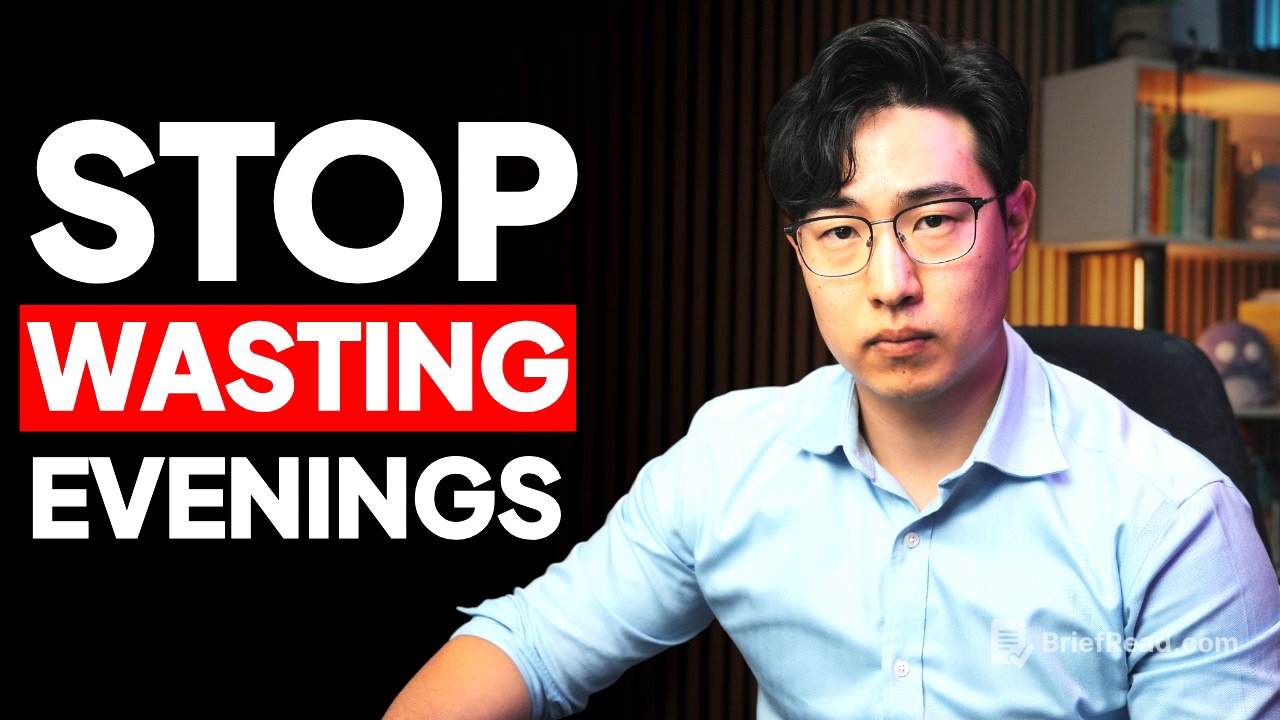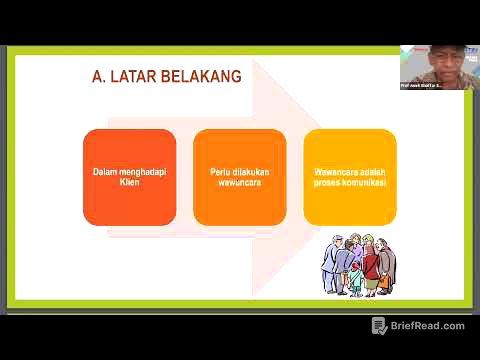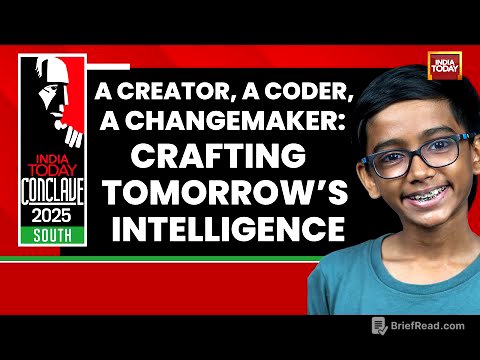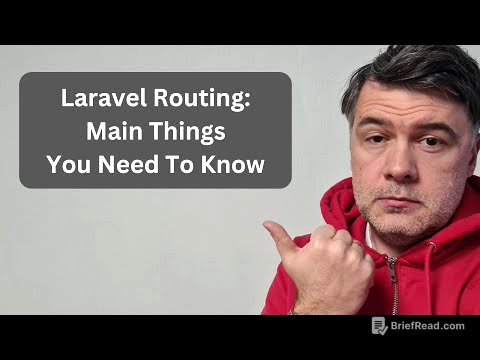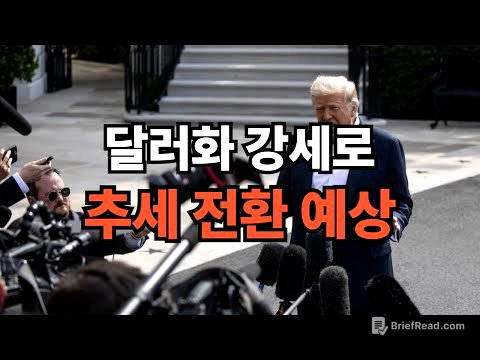TLDR;
This video provides seven strategies to transform unproductive evenings into fulfilling and productive time. It emphasizes calibrating energy levels, treating energy like a generator, cutting the tiredness cycle, prioritizing effectively, establishing a wind-down routine, creating space for procrastination, and avoiding energy dead spots. The key is to manage energy and time intentionally to align with personal goals and well-being.
- Calibrate natural energy levels to avoid operating below optimum.
- Treat energy like a generator by engaging in energizing activities.
- Cut the tiredness cycle by focusing on high-quality, aligned tasks.
- Use the "or not and" strategy to prioritize tasks and manage expectations.
- Win the week by implementing a nightly wind-down routine.
- Create procrastination space to combat revenge bedtime procrastination.
- Avoid energy dead spots by restructuring activities or routines.
Intro [0:00]
Justin Sung introduces himself as a learning and productivity coach with 13 years of experience, during which he has helped over 30,000 people triple their productivity using research-based methods. He addresses the common feeling of tiredness and unproductivity in the evenings, asserting that it doesn't have to be the norm. The video will share seven specific strategies to transform evenings into productive and fulfilling time.
Strategy 1: Calibrate Your Natural Energy Levels [0:26]
The first strategy involves calibrating natural energy levels by recognizing that constant tiredness is not normal. The speaker shares his personal experience of feeling tired for 15 years, from high school through his medical career, and how he realized his standard for adequate rest was skewed. He emphasizes the importance of understanding one's true optimum energy state through experimentation, such as adjusting sleep schedules. For him, 9 hours in bed is the number to feel rested. The key takeaway is that you can't pour from an empty cup, so prioritizing rest is essential for evening productivity.
Strategy 2: Treat Your Energy Like a Generator, Not a Battery [5:16]
The second strategy advises treating energy like a generator rather than a battery. Instead of thinking that energy depletes with activity, the speaker suggests that certain activities can generate energy. He shares his experience of working long hours during university and medical school, not because he had to, but because those activities energized him. The takeaway is to find activities that excite and energize you, such as physical activities or cognitively effortful tasks, and prioritize them to top up energy levels. He also recommends learning something new in the evenings as a productive and fulfilling use of time and promotes his free weekly newsletters as a resource for learning science.
Strategy 3: Cut the Tiredness Cycle [10:14]
The third strategy focuses on cutting the tiredness cycle by ensuring that the activities you engage in are fulfilling and aligned with your goals. The speaker shares his experience of feeling unproductive despite working more hours after quitting his job as a doctor. He realized that the quality and alignment of his work decreased because he lacked mental freedom and time for reflection. The takeaway is to give yourself one main goal and one stretch goal each evening, and if you're feeling low in energy, do your generating activity or give yourself permission to rest without guilt.
Strategy 4: The Or Not And Strategy [13:22]
Strategy number four introduces the "or not and" strategy, emphasizing that saying yes to important things requires saying no to others. The speaker explains that there's no such thing as not having enough time, only not being a priority. He advises writing down all the things you want to do in an evening and determining the buffer time for each item, which is the amount of leeway you have before it becomes a high priority. This helps you make informed decisions about what to prioritize and what to let go of on any given day.
Strategy 5: Win the Week, Not the Day [16:11]
The fifth strategy encourages winning the week instead of trying to maximize each day. The speaker discusses the tendency to overwork and avoid wind-down routines, which sacrifices sleep quality and energy levels. He shares his experience of working in the emergency department, where he learned the importance of protecting his time and energy to avoid burnout. The takeaway is to set up a wind-down routine of at least 30 minutes, with no screen time, and engage in activities that slow down your thoughts, such as writing or reading.
Strategy 6: Create Procrastination Space [20:10]
Strategy number six advises creating procrastination space to combat revenge bedtime procrastination. The speaker explains that revenge bedtime procrastination is the tendency to scroll on your phone and procrastinate before bed due to feeling a lack of control during the day. To combat this, he suggests giving yourself freedom windows throughout the day where you can do whatever you want, such as scrolling on social media. The takeaway is to set up two to five of these freedom windows, limited to five to ten minutes each, and use app blockers to configure them.
Strategy 7: Avoid Energy Dead Spots [21:51]
The final strategy involves avoiding energy dead spots, which are activities or blocks of time that cause a sharp drop in energy. The speaker shares his experience of avoiding the bus during traffic hours in university to prevent feeling lethargic. The takeaway is to identify these energy dead spots and either avoid them or turn them into energizing activities. He suggests staying at work for an extra hour to beat traffic or fitting in a workout after work. He also shares an example of a software developer who switched from driving to taking the train to make his commute more engaging.
